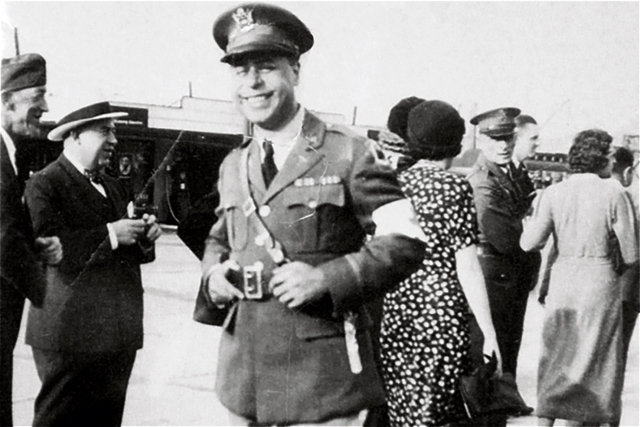
Throughout American history, Black service members have forged new paths for future generations, despite the prejudices they may have encountered. One such trailblazer was Dr. Frank Erdman Boston, who reached the rank of major during World War I. He went on to become one of the first Black men to start both a hospital and an ambulance corps, which are still in business today.
From the start, Boston’s life seemed pretty remarkable. He was born on March 10, 1890, in Philadelphia and was one of four children born to a hairdresser and a Civil War veteran-turned-barber shop owner. Boston and his older brother, Samuel, both became doctors.
According to George Whitehair, the executive director of the Boston Legacy Foundation that preserves the doctor’s history, Boston’s mother was part French and Native American, so she taught him the healing powers of herbs and natural remedies at a young age. Throughout high school and college, he worked at a drug store.
Excelling in times of war
Boston went to Lincoln University in Oxford, Pennsylvania, the nation’s first degree-granting Historically Black College and University. He then studied at the Medico-Chirurgical College, graduating in 1915 with a degree in pharmacy and medicine just a year before the medical school merged with the University of Pennsylvania.
Boston then went to work for Mercy Hospital, one of two Black-run hospitals in Philadelphia. According to Whitehair, he also had a solo medical practice and was teaching first-aid classes for nurses when he enlisted in the Army Medical Reserve Corps in 1917. He was immediately given the rank of first lieutenant and sent to Fort Des Moines, Iowa, the Army’s only training camp for Black officers.
By June 1918, Boston was sent to France as part of the American Expeditionary Forces. He was a medical officer with the 317th Engineers Regiment that was part of the segregated 92nd Infantry Division, nicknamed the Buffalo Soldier Division in honor of Black troops who served in the 19th century. Boston, a captain at the time, was a doctor and field surgeon who treated soldiers while under aerial and gas attack. The soldiers fought in the bloody Meuse-Argonne Campaign, the war’s most deadly battle that raged until the armistice was signed on Nov. 11, 1918.
By the end of his military service, Boston had attained the rank of major, which few Black men of that time achieved, Whitehair said. Boston was also a known associate of famed scholar and NAACP founder W.E.B. Du Bois. Boston wrote letters about his wartime experiences to Du Bois, who had been instrumental in encouraging Fort Des Moines to be established for Black officers.
Boston returned to Philadelphia after the war and continued his civilian career as a doctor, but he continued working with the military, too, running a free clinic for U.S. and British war veterans, according to the National Museum of Health and Medicine. In 1924, he became the first commander of the city’s Lt. William G. Junken VFW Post.
A groundbreaking venture
By 1931, Boston had moved to the suburb of Lansdale after a fishing buddy recommended it, Whitehair said. Two years later, he formed an ambulance corps called the First Aide Emergency Squad, which provided first aid and emergency training. The corps worked like current-day emergency medical services but came along about 40 years before EMS became an actual profession.
Those who worked for the corps wore uniforms and trained like a military unit. During World War I, medical technologies such as mobile X-ray machines and motorized ambulances were used for the first time, which may have contributed to Boston’s intertest in starting the corps, Whitehair said.
It turned into a very successful venture. Boston and his corps teammates were credited with saving hundreds of lives during March 1936 storms that wreaked havoc across Pennsylvania, flooding rivers and leading to a major disaster in the town of Lock Haven, where the corps was in charge of rescue work.
“Hundreds of civilians were saved due to the efforts of Dr. Boston and his corps,” Whitehair said.
In 1934, Boston also opened the 23-bed Elm Terrace Hospital and eventually became its head surgeon. The Boston Legacy Foundation says he is one of the first Black men to start both a hospital and an ambulance corps, and they’re still around today. The hospital is now known as Jefferson Lansdale Hospital, and the ambulance service is known as the Lansdale Volunteer Medical Services Corps.
According to Whitehair, Boston also started a service akin to Meals on Wheels well before that service became established in America.
“Dr. Boston may be one of the first in food delivery as he would secretly deliver meals to people in the area who were struggling, especially coming out of the Great Depression and the war,” Whitehair said. “Boston would make house calls and he would take baskets of food and deliver it to people who had no money, and [he] never asked for thanks or recognition.”
Spreading kindness and compassion
Boston’s accolades were abundant. He worked with the Boy Scouts and was a member of various medical associations, including as one of the first Black members of the Association of Military Surgeons of the U.S., of which he became a life member in 1959 after 30 years of membership. Boston was the recipient of two U.S. Presidential Citations — one from President Harry S. Truman and another from President Dwight D. Eisenhower — for his work in the community.
Boston never married, but he did have a life partner, Mabel Reed, who worked with him throughout his practice and was his partner in running the ambulance corps, Whitehair said.
“Mabel managed the [ambulance corps], which was unheard of in the 40s and 50s,” Whitehair said, highlighting Boston’s forward thinking.
In 1959, Boston sold the hospital but remained its chief of surgery. That same year, he was diagnosed with cancer. He died on Feb. 8, 1960, and was buried in White Marsh Cemetery in Horsham, Pennsylvania.


